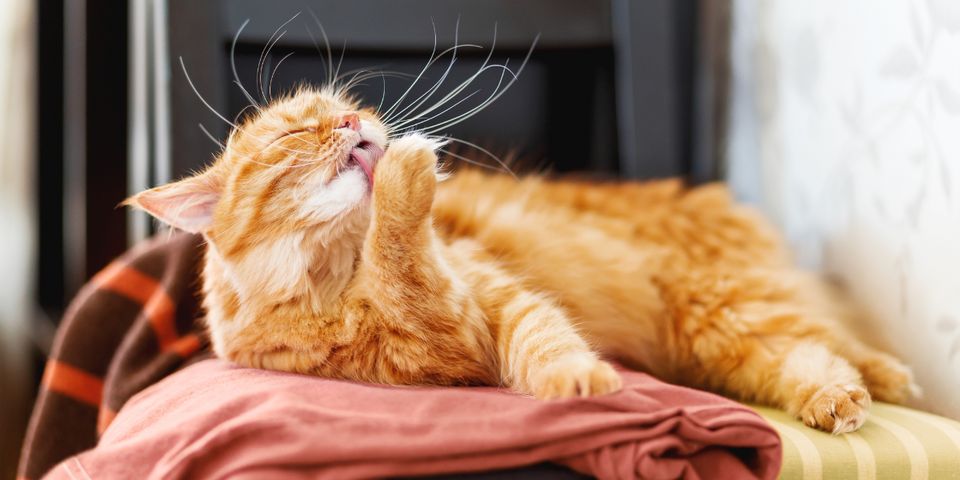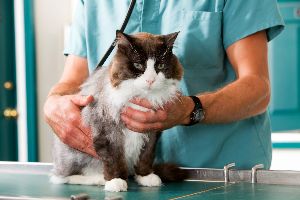
Self-grooming is a normal behavior for cats. In fact, most felines spend about half their time licking their fur to keep themselves clean and remove loose hair. However, if you notice that your cat is spending more time grooming themselves, to the point where they are losing patches of fur, developing sores or irritated patches of skin, or coughing up excessive hairballs, a visit to the veterinarian to rule out a possible health issue is in order. Uncovering the reason for the behavior and treating it can keep your kitty happy and healthy.
Why Cats Overgroom
Physical reasons for overgrooming include allergies, infections, or pain due to an illness or injury. This is often indicated by overgrooming a specific area of the body. For instance, a cat that is allergic to pollen may lick or chew at their paws, especially after being outdoors. Ear mites might cause your kitty to lick and chew their ears, while flea bites often cause irritation at the base of the tail. Excessive licking of the genitals may be a sign of a urinary tract infection.
Cats may also compulsively groom as a response to stress, anxiety, or boredom. When cats lick themselves, it releases endorphins, neurotransmitters that support feelings of calm and well-being. If your pet is stressed by a change in your household (like the addition of a new pet or a move to a new home), compulsive licking can help them feel better.
Boredom can also cause overgrooming in cats. If your cat doesn't have enough physical or mental stimulation, it may turn to grooming as a way to feel better and pass the time. This is more common in indoor cats who are home alone for long periods.

How to Stop Overgrooming
If you catch your cat overgrooming, avoid interfering or punishing it. This will only increase their stress, and may cause continued overgrooming. Instead, make an appointment with the veterinarian to determine the underlying cause of the behavior. If there is a physical issue, like fleas or mites, the doctor can prescribe treatments to eliminate them, which should curb overgrooming.
For behavioral-related overgrooming, veterinarians recommend taking steps to reduce their stress and maintain a consistent routine. Feed them at the same time every day, keep their litter box clean, and spend time playing or snuggling together. If change is imminent, gradually introduce your cat to the change to help them feel more comfortable. In some cases, for especially stressed cats, the veterinarian may prescribe medication or calming supplements to help them relax.
If your cat's behavior has you concerned about its well-being, make an appointment for them to see a veterinarian at Yankee Hill Veterinary Hospital in Lincoln, NE. The animal experts at this clinic and hospital will get to the bottom of the problem and help your four-legged friend feel better quickly. In addition to routine care, the clinic also provides emergency services. Learn more about services on the website, or call (402) 421-8111 for an appointment.
About the Business
(10 reviews)
Have a question? Ask the experts!
Send your question

